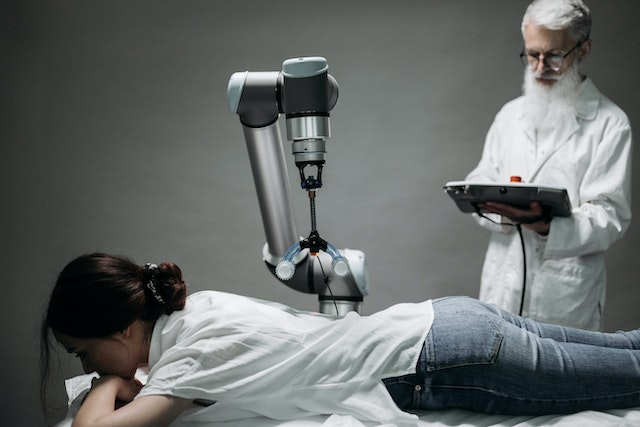Read on if you’re wondering how artificial intelligence (AI) will impact healthcare. This technology can help detect deterioration and complications in patients. It can also predict sepsis and help in early drug discovery. The potential for ai in healthcare is numerous, but there are some significant risks to consider.
Contents
AI can Detect Deterioration.
Using AI, healthcare professionals can detect deterioration in patients early in their treatment. A recent study by Novant Health shows that predictive models can detect deterioration in hospitalized patients, reducing mortality by 22 percent and saving an estimated 153 lives. To achieve this goal, the team developed an AI-based predictive model.
Healthcare practitioners can use AI to manage their workflows better and allocate resources. For example, AI systems can predict departmental staffing needs, recommend optimal patient care, and identify revenue-generating practices.
AI can Detect Complications.
Several studies have examined the effectiveness of AI in detecting complications in healthcare, from heart attacks to sepsis. However, they have found mixed results. The study results were influenced by the settings in which the algorithms were deployed. For example, Epic’s sepsis detection algorithm was ineffective in real-world settings. The study also showed that the types of hospitals where AI was used influenced the accuracy of the results.
AI can also process complex images and health records and make accurate diagnoses in near real time. AI can correctly detect diabetes, cancer, and other conditions using medical images and data. Using these systems alongside human physicians can reduce the rate of misdiagnoses, minimize physician overload, and boost productivity.
AI can Predict Sepsis.
AI can predict sepsis based on a patient’s medical history; in some cases, it can do so early and accurately. The research aims to create an accurate model of sepsis, which will help healthcare providers determine how to treat patients. The goal is to prevent deaths and improve patient outcomes.
The study was published in NPJ Digital Medicine and focused on developing a deep learning model called COMPOSER. The algorithm is sensitive to patterns over time and uses multiple layers of data to predict patients needing intensive care accurately. This early diagnosis can help reduce the rate of sepsis-related mortality and reduce the length of hospitalization. It could also reduce the psychological impact of sepsis and improve patient recovery.
AI can help in Early Drug Discovery.
Using artificial intelligence (AI) to predict drug toxicity levels is a promising way to reduce the cost of drug discovery. AI can also help identify novel compounds and drug structures. This helps reduce the number of false positives and improves assay parameters. By 2020, AI is expected to play a pivotal role in drug discovery.
For example, AI can predict lead compounds through their ADME (Adverse Drug-Material Interaction) data. This data can help researchers determine potential drug interactions. AI can also help predict drug-protein interactions.
AI can Improve Productivity.
With AI’s ability to quickly analyze large amounts of data, health systems can increase their efficiency and productivity. This can lead to cost savings and improved patient care. AI-enabled solutions can streamline the process of insight generation and facilitate conversations with patients. By analyzing data and using machine learning algorithms, health systems can develop personalized health plans and improve treatment through advanced analytics.
But the use of AI in healthcare settings presents new challenges. It is essential to implement strong governance and privacy policies to minimize risk and bias, which could lead to problems down the line. A robust data strategy also should include inclusivity, equity, and fairness principles. In addition, healthcare organizations should conduct internal audits on their AI systems and ensure that any vendor provides unbiased systems.
AI can Reduce the Need for a Trained Radiologist.
AI is a tool that can help physicians detect disease and injury more quickly and efficiently. It can also assist radiologists in making decisions regarding treatment options. AI can give radiologists a wealth of information at a glance, which could help them better monitor patients’ conditions and diagnose them more accurately.
Healthcare providers must understand the process, and its limitations to develop AI-based tools. For example, AI-assisted radiologists must consider how AI software is trained and validated and how secure it is. In addition, AI should adhere to strict regulations, which include FDA clearance and HIPAA compliance.




